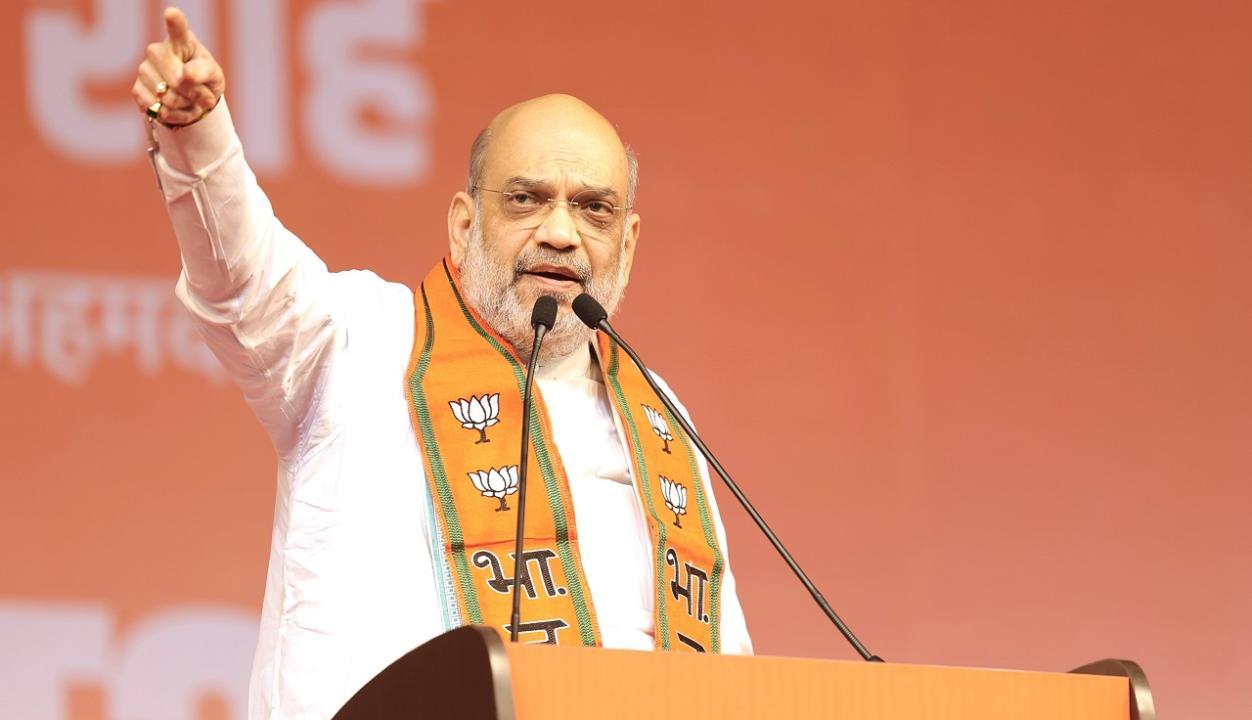Shah stated that unless the process of "legislative drafting" is fully developed scientifically, the chances of democracy succeeding remain unlikely

Union Home Minister Amit Shah. File Photo
Union Home Minister Amit Shah has said that "legislative drafting" is a very important and necessary art for a country like India which is governed by a constitution. Shah was addressing the 'Legislative Drafting Training' program in the Gujarat Legislative Assembly on Tuesday where several dignitaries, including the Speaker of the Gujarat Legislative Assembly, Shankar Chaudhary, and the Chief Minister of Gujarat, Bhupendra Patel, were present.
ADVERTISEMENT
According to a press release from the Ministry of Home Affairs, Amit Shah said that the art is gradually fading away. He mentioned that under the leadership of Prime Minister Narendra Modi, the government has completed 10 years, during which India has become the center of global aspirations, with its roots in the Gujarat Legislative Assembly.
The Home Minister noted that "legislative drafting" is the essence of law, and the decline of this art would not only be detrimental to democracy but also harm millions of people in the state and the country. He said that if drafting is done without understanding the legislative process while making laws, then the laws will never fulfill their intended purpose.
"The responsibility of converting a cabinet note into a bill lies with the legislative department, which eventually leads to the formation of law," he said. Shah stated that unless the process of "legislative drafting" is fully developed scientifically, the chances of democracy succeeding remain unlikely. Amit Shah, further stated that if there is any ideal for "legislative drafting" in the world, it is the framing of the Constitution of India. He stated that there is no process bigger than the framing of the Indian Constitution. He emphasized that clarity is the most important aspect of the art of "legislative drafting."
"The clearer the legislators are in translating their objectives into law, the smaller the gray area will be; and the less the gray area, the lesser the judicial interventions will be," he pointed out. He also mentioned that judicial interventions occur where gray areas are lacking clear legal interpretations; therefore, laws should be made clear.
"Article 370, for example, was very clearly drafted by the drafting Committee of the Constitution. He said, the term "Temporary Provisions of the Constitution" was very important, meaning that it is not a "Permanent Provision," and its removal does not require an amendment to the Constitution. It was mentioned that the President can issue a constitutional order to revoke Article 370 at any time, with a validation by a simple majority in both the Lok Sabha and the Rajya Sabha," Shah added.
The Home Minister stated that if Article 370 was kept as a provisional constitute at that time, a two-thirds majority would have been required to remove it, adding, "However, the legislators were very clear that the temporary provision was a makeshift arrangement, and as a result, the reference for its removal was placed in Article 370(3)."
He appealed to all legislators and MPs to maintain continuous contact with the legislative drafting wing and keep engaging in discussions with them. He mentioned that Prime Minister Narendra Modi established a training school for "legislative drafting" within the Parliament House in 2019.
Amit Shah noted that an aware politician can bring about significant change through their legal understanding. Citing the example of G.V. Mavalankar, he mentioned that despite being in the opposition, he proposed 16 reforms, all of which had to be accepted by the ruling party because they were well-considered proposals for reform. He emphasized that those involved in legislative drafting should have the abilities of a philosopher, knowledge of historical facts, and have a deep understanding of linguistics.
This story has been sourced from a third party syndicated feed, agencies. Mid-day accepts no responsibility or liability for its dependability, trustworthiness, reliability and data of the text. Mid-day management/mid-day.com reserves the sole right to alter, delete or remove (without notice) the content in its absolute discretion for any reason whatsoever
 Subscribe today by clicking the link and stay updated with the latest news!" Click here!
Subscribe today by clicking the link and stay updated with the latest news!" Click here!







